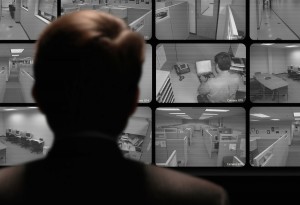How the Rise of Privacy in Social Media Will Change the Way We Think About Employees

For the most part, candidates were in control of the flow of information: they crafted their resumés; they choose which personal details they were willing to give out; they may have even coached their references (not terribly common, but still a possibility).
Social media changed all of this: with unprecedented access to public audiences, everyone began to live their lives in the public eye. People reported their mundane activities, thoughts, and feelings on blogs; their Facebook photos served as windows into their personal worlds; tweets contained valuable information about a person’s likes, dislikes, and attitudes. Social media encouraged people to overshare, because it was just so easy to do that, and sharing personal information about ourselves apparently triggers our brains’ reward systems in huge ways.
All of this oversharing has been awesome for employers: they can learn a lot more about candidates than they ever could before by simply Googling their names.
Now comes the backlash: in the wake of Edward Snowden and story after story of people paying the consequences for sharing too much on social media — lost jobs, arrests, ruined lives, etc. — people have begun to clamor more and more for privacy — for the ability to, in effect, hide their oversharing from unwanted eyes.
Which is to say: recruiters, HR professionals, and talent professionals of all stripes — social media may soon no longer be the boon it once was.
How Privacy Affects Your Hiring
Writing for TechCrunch, Alexia Tsotsis explores how social media is not moving away from oversharing, but is instead moving toward anonymous oversharing.
“The Internet needs to learn how to forget,” she writes. And it is learning: apps like Whisper, Secret, and Snapchat allow us to overshare in ephemeral, secret ways. We still divulge tons of information about ourselves, but now we can make it impossible for people to trace that information back to us — if they even find it in the first place.
Tsotsis calls this private oversharing the future of social networking. Evidence suggests she is right: On CrunchBase, Jon Shieber recently detailed the growing wealth of new, privacy-centric social media platforms. For all of Facebook’s attempts to make your online self more and more public, the deck is stacked against Zuckerberg and his team.
It seems we’re heading back to the old, pre-social media times: candidates will largely control the flow of information about themselves, which means recruiters and HR professionals will have a harder time verifying whether or personal branding activities are “authentic” — e.g., in line with who a candidate is in their personal life.
This may seem, on the surface, like a bad thing, but it really isn’t. In the current hiring landscape, where company culture is king, we often forget that an employee’s work life and home life can be two separate things. The self presented at work is not necessarily the self presented at home, and that’s completely okay. It doesn’t mean one is more authentic than the other. People act differently in different contexts — do you talk to your drinking buddies the same way you talk to your mother? That’s just how we navigate life.
Company culture is important, but some organizations are taking it too far. Recently, a friend of mine had to stay after hours at her job to attend what was billed as a “staff meeting.” But it wasn’t a staff meeting: instead, it was a three-hour affair of mandatory “fun” activities. She was livid.
“I’m an adult,” she said to me. “I have a life outside of work.” She spent eight hours that day living her work life; did she really have to spend three more hours living that life? Didn’t she deserve some time to live her home life?
So I think the rise of private social media could be a good thing for employers. It may be the kick they need to remember that their organization does not need to be a part of their employee’s personal life, and that, for the most part, what an employee writes on their blog will not impact their job performance.

